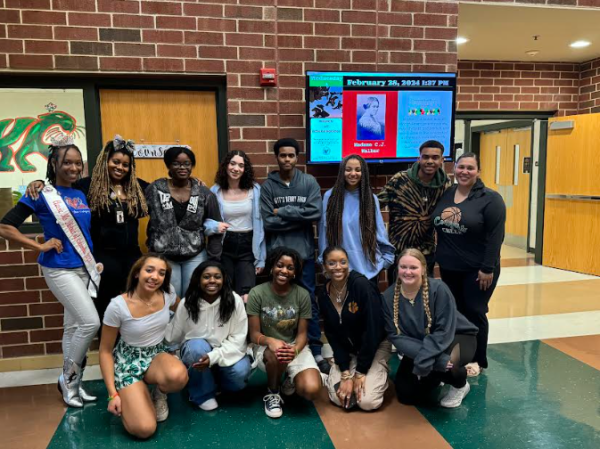Biden signs into action Anti-Lynching Bill
This begs the question: why did it take this long?
April 22, 2022
After many battles in the House and Senate, the Biden Administration has signed into law the Anti-Lynching Bill, which makes lynching officially a federal hate crime that is punishable by up to thirty years in prison. The bill is formally known as the Emmett Till Anti-Lynching Bill, named after the teenage black boy in 1955 who was brutally beaten and murdered by men in the south. Till’s death sparked outrage in the African-American community and ultimately helped lead to the growth of the Civil Rights movements of the 1960s.
The day that this bill was signed was an emotional day for relatives of Emmet Till, with a cousin named Ollie Gordon saying that “our ancestors are smiling down and rejoicing” over this moment. The Biden Administration strongly supported it, with Biden saying at his address after signing that “Racial hate isn’t an old problem – it’s a persistent problem. Hate never goes away. It only hides” (Bailey). This bill was passed with a unanimous vote from the Senate, though still had opposition in the House, and was immediately sent to the president’s desk.
Even though this bill has been praised by many politicians who have been fighting for it, as well as many members of the Till family, it is still a controversial law. Not in what it does but the fact it has taken this long to actually come to fruition. Many citizens of the United States, and even politicians, were not even aware that this was not already a law. The first anti-lynching bill was introduced 122 years ago in 1900 by George Henry White, the only African-American serving Congress at that time. Since then, it has failed 200 times in Congress, never making it far until now.
Other individuals criticize that the bill comes way too late as lynching-based crimes like the Emmet Till case are not a common occurrence anymore. However, activists and supporters of this bill bring up that though “mobs of white Americans no longer line up to take commemorative photos beneath hanging trees” (Bailey), it is still something that happens in the United States. This is evident from the recent controversies and discussions of deaths such as George Floyd, Breonna Taylor, and many more black men and women who were murdered by police officers who were attempting to arrest them with force. Though this bill has finally been passed, it speaks volumes to the American people – especially the African-American community – that it took over 100 years to get it passed. It only stays as a reminder of the racist history of the United States that people are still trying to find justice for so many years later.
It is still a mystery as to why it would take the United States this long to pass a bill that was so widely accepted to already be one. Though this bill could help make this country a safer place, it reflects on how much work still needs to be done before this nation can truly be safe for its citizens.
Works Cited:
Alfonseca, Kiara. “Emmett Till’s Family Reflects on 100-Year Battle to Pass …” Emmett Till’s Family Reflects on 100-Year Battle to Pass Anti-Lynching Bill | Nightline, 2022, https://www.youtube.com/watch?v=2W9Z7fWS-ks.
Bailey, Chelsea. “Joe Biden Signs Anti-Lynching Bill in Historic First.” BBC News, BBC, 29 Mar. 2022, https://www.bbc.com/news/world-us-canada-60679930.




























